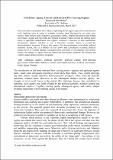Conclusion : agency, context and emergent post-uprising regimes
Abstract
This conclusion summarizes the evidence explaining the divergent trajectories taken by post Arab uprising states in terms of multiple variables, each illustrated by an iconic case, namely: State Failure and Competitive governance (Syria), Regime Restoration and Hybrid Governance (Egypt) and Polyarchic Governance (Tunisia). Factors include the starting point: levels of opposition mobilization and regimes' resilience – a function of their patrimonial-bureaucratic balance; whether or not a transition coalition forms is crucial for democratization prospects. Context also matters for democratization, particularly political economic factors, such as a balance of class power and a productive economy; political culture (level of societal identity cleavages) and a minimum of international intervention. Finally, the balance of agency between democracy movements, Islamists, the military and workers shapes democratization prospects.
Citation
Hinnebusch , R 2015 , ' Conclusion : agency, context and emergent post-uprising regimes ' , Democratization , vol. 22 , no. 2 , pp. 358-374 . https://doi.org/10.1080/13510347.2015.1010815
Publication
Democratization
Status
Peer reviewed
ISSN
1351-0347Type
Journal article
Collections
Items in the St Andrews Research Repository are protected by copyright, with all rights reserved, unless otherwise indicated.

